

Congenital Heart Disease:
- Why are medical IDs important for those living with CHD?
- Who is at risk for Congenital Heart Disease?
- What are the most common types of Congenital Heart Disease?
- How can medical IDs help those with Congenital Heart Disease in an emergency?
- What to Engrave on a Congenital Heart Disease Medical ID?
- Tips for Purchasing a Medical ID with Congenital Heart Disease
Congenital heart disease is a disease that affects the structure of the heart and can be present in utero. It can be diagnosed via ultrasound, or in some circumstances, when a baby is born. Unfortunately, there is no cure for this, but there are measures you can take in order to be prepared.
Why are medical IDs important for those living with CHD?
Since congenital heart disease can not be cured, it is important to take precautionary measures to ensure safety.
Medical IDs are a great way to inform first responders of relevant conditions, medications, and emergency contact information in case of an emergency.
For example, children with congenital heart disease can have short term memory, problems communicating, and can have outbursts or irrational behavior.
Wearing a medical ID can help identify when a person has CHD and help aid them in an emergency situation.
“I have had much more peace of mind knowing that my son, Joshua, who was born missing one chamber of his heart, has a medical ID bracelet” – Jodi Lemacks, National Program Director for Mended Little Hearts and longtime customer of Universal Medical ID.
Who is at risk for Congenital Heart Disease?
Since CHD is a genetic trait, there is no way of telling who is at risk for this disease. There are factors that can contribute to a child developing CHD. According to MAYO Clinic, smoking, consuming alcohol, and taking medications can all contribute to the development of congenital heart disease. CHD is also a genetic trait that can be passed down from family members. According to Heart.org, there is a 2% to 15% that CHD can reoccur.
What are the most common types of Congenital Heart Disease?
CHD can include the following below:
- Atrial Septal Defect
- Atrioventricular Septal Defect
- Coarctation of the Aorta
- Hypoplastic Left Heart Syndrome
- Pulmonary Atresia
- Tetralogy of Fallot
- Total Anomalous Pulmonary Venous Return
- Tricuspid Atresia
- d-Transposition of the Great Arteries
- Truncus Arteriosus
- Ventricular Septal Defect
Learn more: National Institute of Health.
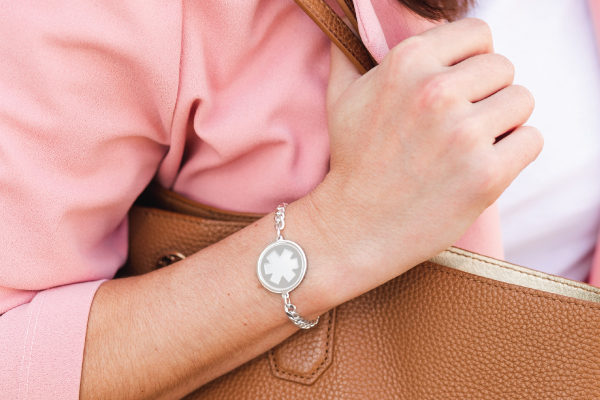

How can medical IDs help those with Congenital Heart Disease in an emergency?
Since CHD is a disease that is not noticeable, it is important to be prepared. During a medical emergency, it could be hard for people around you to understand what is going on. It can also be hard for the people around you to know how to proceed with treatment. First responders will be able to administer the correct treatment if they are certain about what could be wrong.
When you are not able to speak, let a medical ID speak for you.
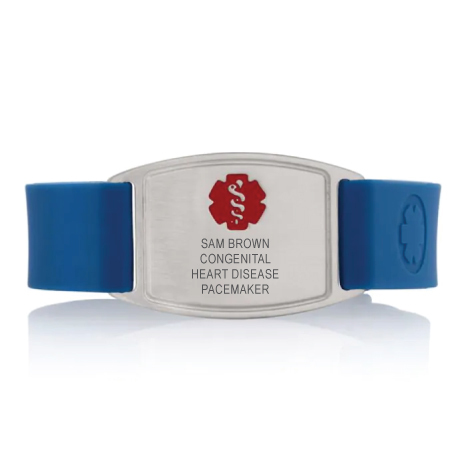

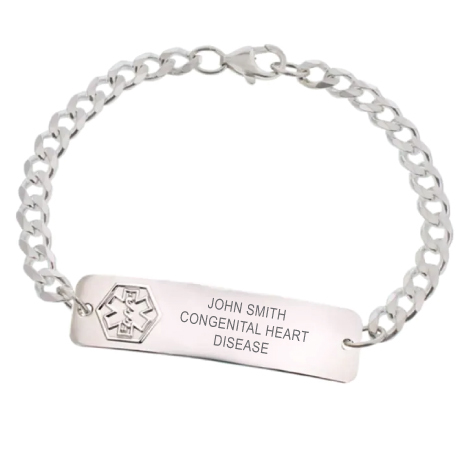

What to Engrave on a Congenital Heart Disease Medical ID?
If you're unsure about what to engrave on your medical ID, here are some of the most important items to put on as a CHD patient:
- Name
- Congenital Heart Disease – include the type of heart disease, as well as other medical conditions such as high blood pressure or diabetes.
- Additional relevant medical information – include information if you have implants or cardiovascular devices such as a stent, sternal wire sutures, artificial valve, pacemaker, or ICD.
- Heart Disease Medications – examples are blood thinners or anticoagulants that can interact with other drugs or could cause excessive bleeding.
- Emergency Contact Information (ICE)
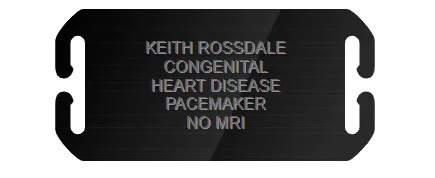

Tips for purchasing a Medical ID Bracelet or Medical ID Necklace for Heart Disease
Since you’ll be wearing your medical ID every day, consider the following factors before deciding which medical ID bracelet or necklace is for you.
- Bracelet vs. Necklace: the most common choice for a medical ID is a bracelet. Both options will protect you in an emergency, so select what is your preferred medical jewellery type to match your lifestyle.
- Select the metal type and style you want for your medical ID. We offer many styles in stainless steel, sterling silver, titanium, gold-filled, and gold, so you can select the best option for you.
- Consider adding MyIHR (My Interactive Health Record) to your medical ID. MyIHR is an online health record you control with your latest health information, such as conditions, medications, emergency contacts, and much more. Supplement your custom-engraved medical ID with a complete MyIHR profile to include all the important details about your health for a first responder in an emergency or when you need to reference your information for a doctor’s appointment.
For even more information, you can download our Medical ID Guide.




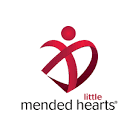



Since 2007, Universal Medical ID has partnered with The Mended Hearts, Inc. - an organization that has helped facilitate a positive patient-care experience for over 70 years. UMID is dedicated to help raise awareness on CHD. There are resources for all ages through our partners: Mended Hearts, Mended Little Hearts and Young Mended Hearts. To learn more, click here.

 - US
- US  - Canada
- Canada  - Australia
- Australia 